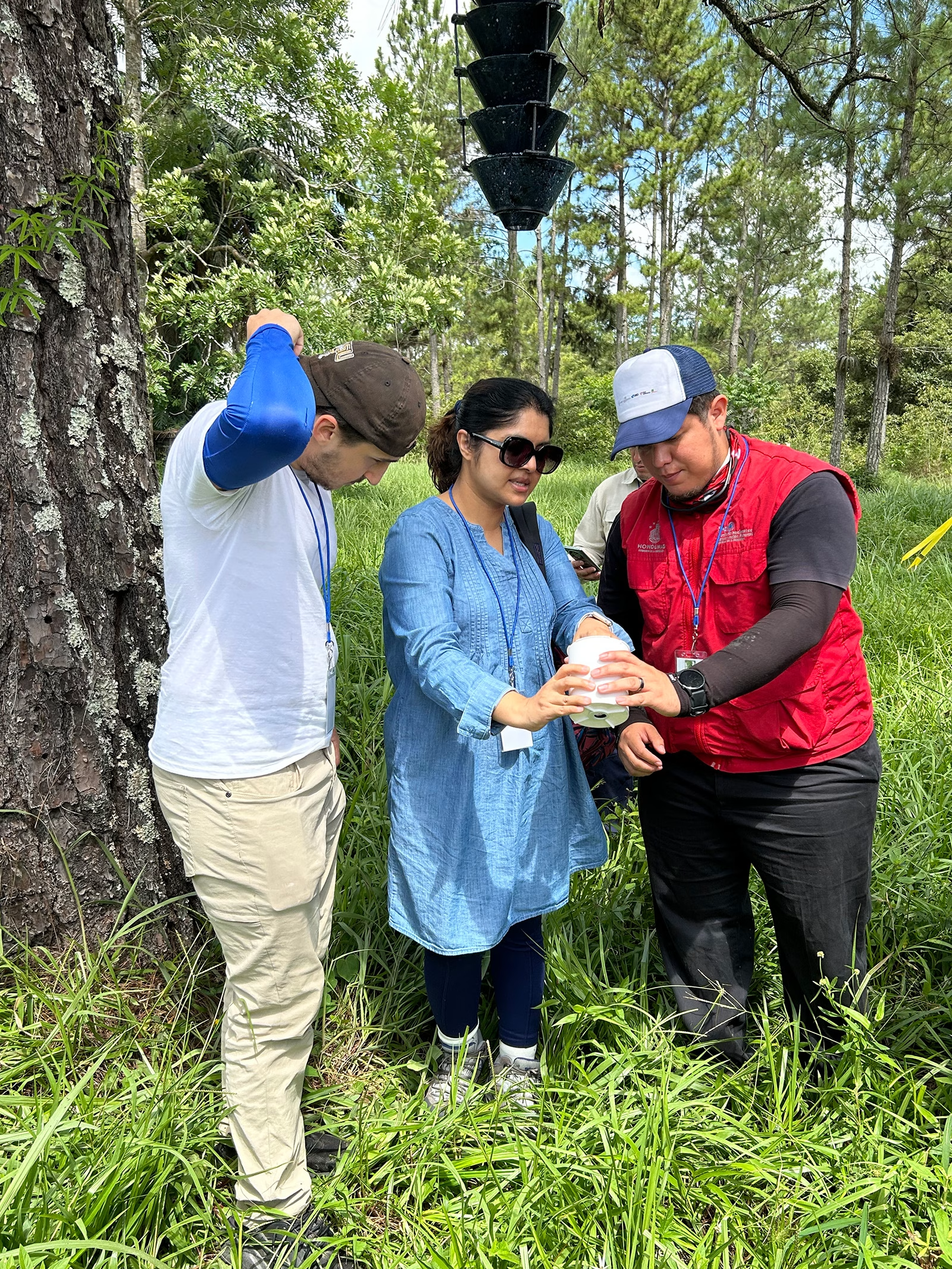INSTITUTE, W.Va. — West Virginia State University (WVSU) and its international partners are proactively addressing the global food security challenges posed by the pine bark beetle. Notably, the pine bark beetle has caused widespread damage to forest ecosystems in various regions of the United States, such as the Southeast, West Coast and Rocky Mountains, as well as in countries including Mexico, Guatemala and Belize. This damage has led to significant ecological and economic impacts with implications for global food security.
The 1890 Center of Excellence for Global Food Security and Defense (CEGFSD) has identified the need to address new and emerging animal and plant pests and diseases in response to these challenges. As part of this initiative, WVSU has undertaken a project that focuses on the pine bark beetle titled “A Collaborative Network for Monitoring Emerging Plant and Animal Diseases for Food Security,” led by Dr. Ayesha Sarker, assistant research professor of Food Science at WVSU.
As part of this project, an international workshop, “Addressing New and Emerging Pests and Diseases: The Case of Pine Bark Beetle in Belize,” was organized in collaboration with the University of Belize and the Forestry Department of Belize. The workshop brought together technical experts and students from WVSU, other 1890 university partners, international partners, private industry partners and local stakeholders for a five-day collaborative session earlier this summer at the Central Farm, University of Belize. The informative workshop encompassed various sessions, including presentations, discussions, field visits and data collection methodologies, fostering a platform for collaboration and knowledge exchange.
“The workshop focused on potential technical support from regional partners in specialized areas such as pine bark beetle identification training and IPM control measures,” Sarker said. “In addition, it demonstrated a solid commitment to potential partners in the Central American Region, aiming to strengthen the network initiative by establishing ties with institutions in Belize, Costa Rica, Guatemala and Honduras.”
The workshop concluded by identifying key points for future collaboration, including beetle species identification, monitoring and evaluation and data collection and management. Moreover, it was recommended that the collaborative network of universities, as well as the public and private sectors, be enhanced to effectively address the transboundary challenges of new and emerging pests and diseases.
Follow West Virginia State University and WVSU Extension Service on Facebook and Twitter @WVStateU.
